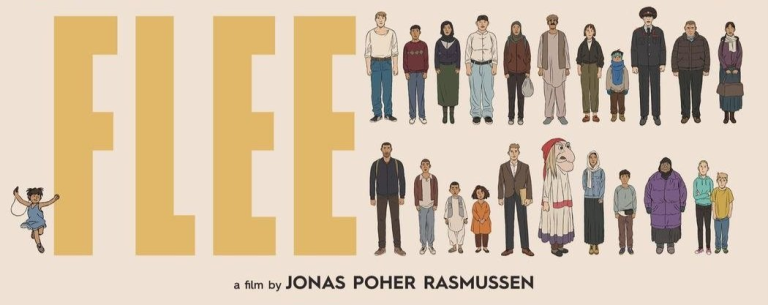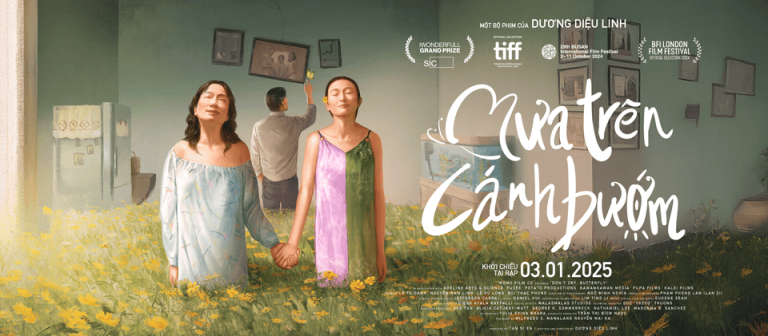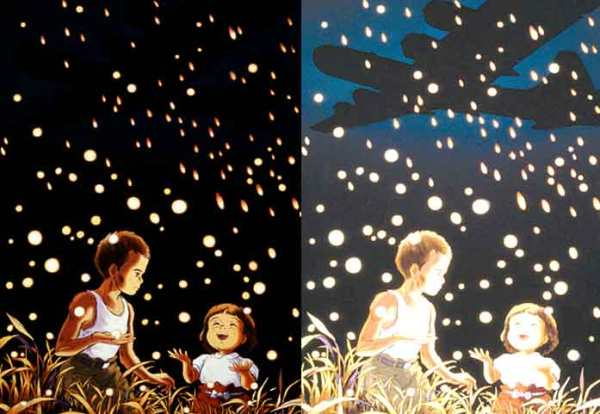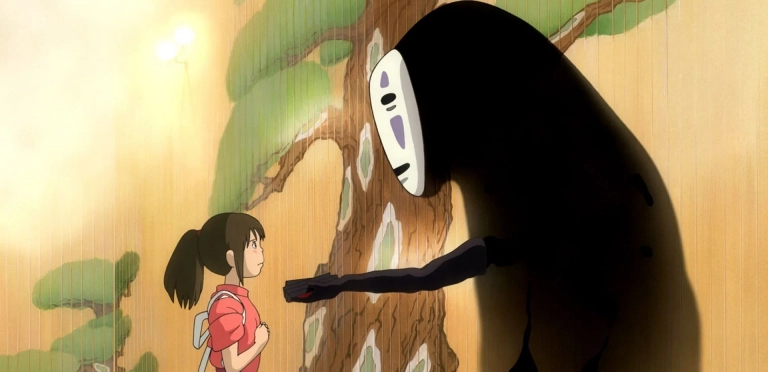Flee, a Danish animated documentary, was nominated for three Oscars across three different categories: Best Animated Feature, Best Documentary Feature, and Best International Feature Film. That tells you a lot—this is a non-English, documentary-style animated film. But what exactly makes this Danish production so exceptional?
Flee is based on the true story of Amin (a pseudonym to protect his identity), who fled Afghanistan in search of a promised land. The context feels even more powerful considering that in early 2021, the world watched as the Taliban took over Kabul and seized control of Afghanistan. In that moment, countless people ran—those who supported the Afghan government, advocates of Western ideals, supporters of religious freedom, women’s rights activists, and anyone opposed to the Taliban’s rule. Amin was among them. But his situation was more complex: he was also gay.
In Afghanistan, even before the Taliban’s return, homosexuality was seen as bizarre. Amin confessed that he didn’t even know what it meant, believing himself to be sick. After fleeing to Russia with his family, they began seeking a new sanctuary in the West.
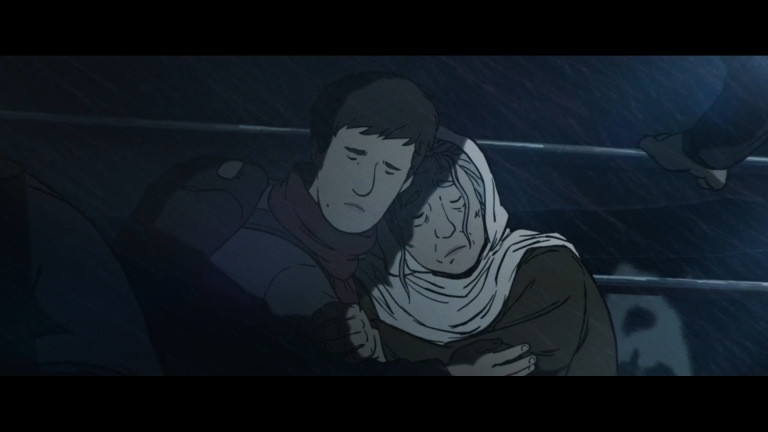
Flee: An Animated Film That Reveals the Afghan Refugee Crisis
The road to that elusive promised land was filled with suffering. Living illegally in Russia with expired visas, Amin’s family had to avoid the police or risk arrest and deportation. They paid human traffickers to smuggle them into Western Europe illegally.
Amin’s sisters were the first to attempt the journey. Crammed inside a sealed shipping container, they crossed the sea to Sweden—a scene that evokes chilling memories of the 39 Vietnamese migrants found dead in a refrigerated container in the UK. Imagine being trapped in stifling darkness, unable to breathe, helplessly awaiting death, as the people around you silently turn into frozen corpses. It’s a nightmare of hopelessness few could comprehend.
Why would anyone willingly endure such agony? For the Vietnamese migrants in that UK tragedy, perhaps it was false promises of a better life. But for Amin’s family, there was no choice. With expired visas, living as outlaws in Russian slums, and the constant threat of deportation back to Taliban-controlled Afghanistan, they had no option but to gamble everything.
By some miracle, Amin’s sisters survived their ordeal. Though they suffered trauma, they reached safety and began rebuilding their lives in the West.
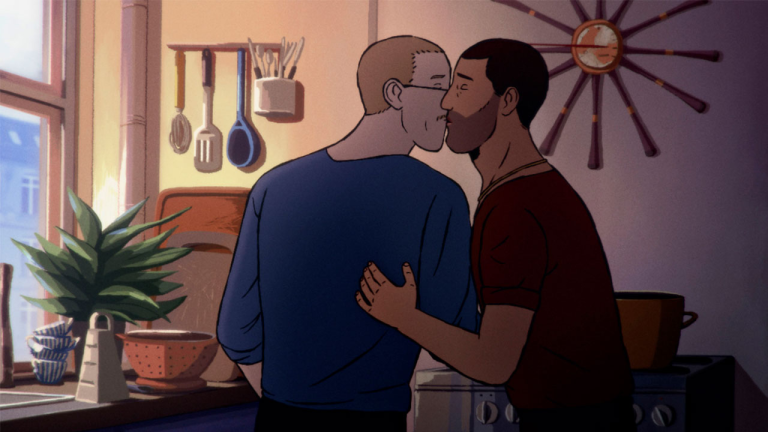
Amin’s Own Journey
Amin eventually followed. Alongside his brother and mother, he boarded a boat across the ocean. The journey was grueling—battling harsh waves, flooding, and uncertainty. But even after all that, they were captured and sent back to Russia.
There, his family pooled their remaining funds to give Amin one last chance. He received forged documents and was told to fabricate a heartbreaking backstory about his family’s death. He was joined on the journey by a young man—a stranger whose name and age he never knew, but who seemed more mature. They shared a container, clinging to each other for warmth and emotional support. It may have been Amin’s first love, even though he’d known his sexuality from a young age back in Afghanistan.
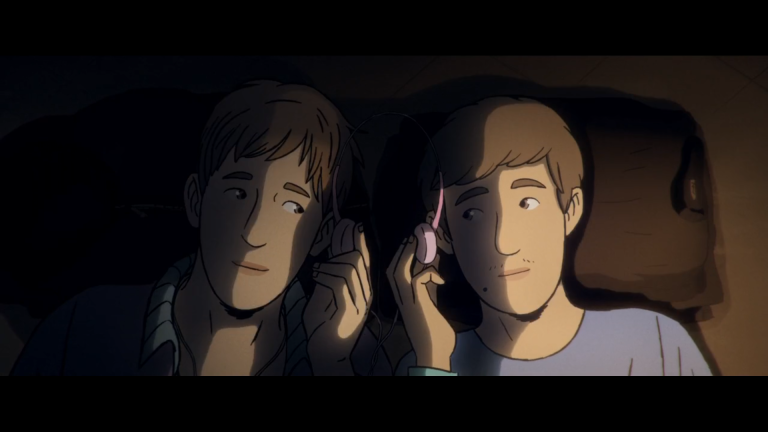
Refuge, Love, and Healing
Now grown and living in Denmark with a supportive partner, Amin recounts his story. And yet, that fleeting companionship with the unnamed boy haunts him—more poignant and tender than anything since. Were the feelings mutual? We’ll never know. Their connection was subtle, intimate, unspoken. They offered each other hope in a dark time—only to part ways forever, one heading to Switzerland, the other to Denmark. Parallel lives that would never cross again.
Being a refugee is difficult. Being a gay refugee is even harder. Amin believed he was ill, that pills could make him “normal.” But Flee diverges from films like The Imitation Game by offering a glimmer of hope. His family, though confused, didn’t reject him. In Denmark, a doctor explained that his sexuality was natural. He didn’t need medicine to be “fixed.” The interviewer—presumably director Jonas Poher Rasmussen—treated this revelation as something completely normal. With support, Amin gradually rebuilt his life, though his trauma never left him.
In fact, his interview felt more like therapy. Amin poured out his soul, sharing stories long buried. The most heartbreaking part? When he recalled lying about his family’s death. Though he knew it was a lie, he broke down in tears—proof that it wasn’t just a story, but the embodiment of his deepest fear.
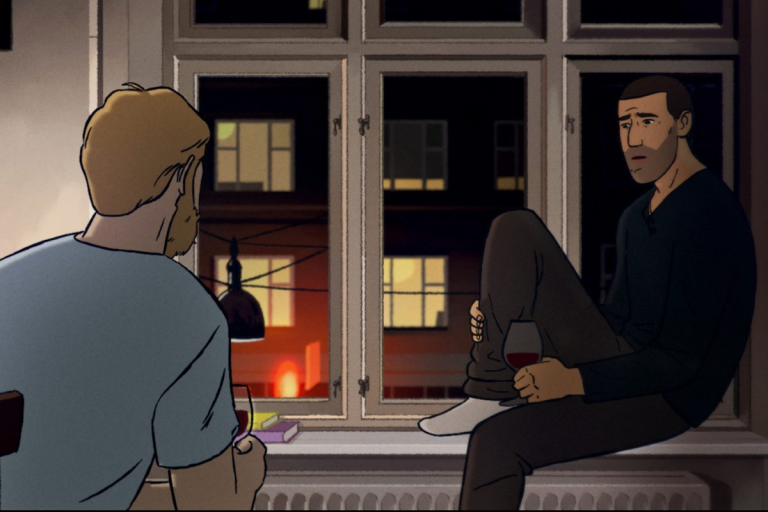
Moments of Contrast
One especially powerful moment came when the refugee boat passed a luxury cruise ship. On one side: desperate people crammed below deck like livestock, clinging to life. On the other: carefree tourists filming the scene like zoo spectators. That moment of humiliation and imbalance struck a nerve—one that forces the audience to reflect.
A Unique Hybrid of Animation and Reality
Flee uses fictional animation blended with real documentary footage—a rare hybrid. While a live-action version might’ve delivered even more emotional weight, the animation approach may have been the only viable option given budget and privacy concerns.
One small critique: the film portrays Russia quite negatively, even though it was the only country offering asylum at the time. With current geopolitical tensions and widespread anti-Russian sentiment in Western media, it’s worth questioning whether Flee presents a fair view. Perhaps Amin’s experience was genuinely that bleak—like those who suffered in post-Soviet chaos. Corruption, bureaucracy, and police brutality were real threats that made the lives of refugees even harder.

The Bigger Picture
Flee tells the emotional story of one man’s painful journey to a new life, and it ends on a hopeful note. But not everyone is so lucky. Who can forget the images from 2021—people falling from planes as they tried to escape Kabul? Unlike in the film Adú, those stories had no happy ending.
Flee is a rare gem that captures the anguish, perseverance, and hope of refugees. It’s a vital piece of the global puzzle—a reminder of the dark side of authoritarianism, religious intolerance, and war. For us, safe and comfortable, watching from behind our laptops, it’s a call to empathy and awareness. And for Amin, it’s a courageous act of remembrance and healing.

